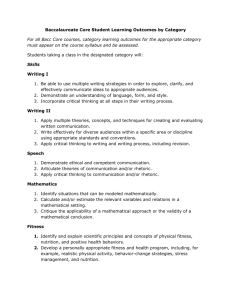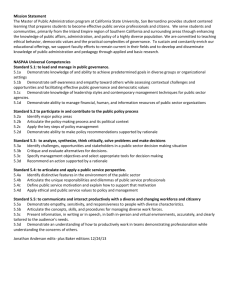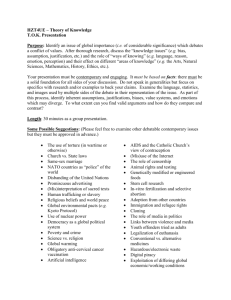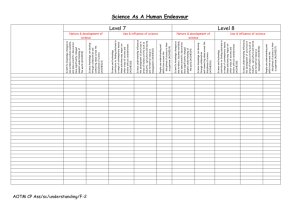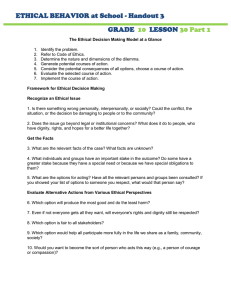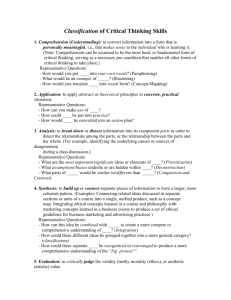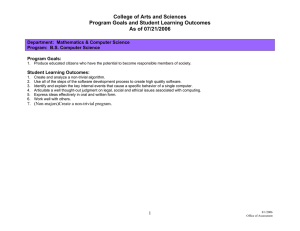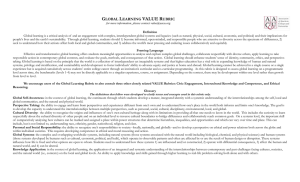Document 12353225
advertisement
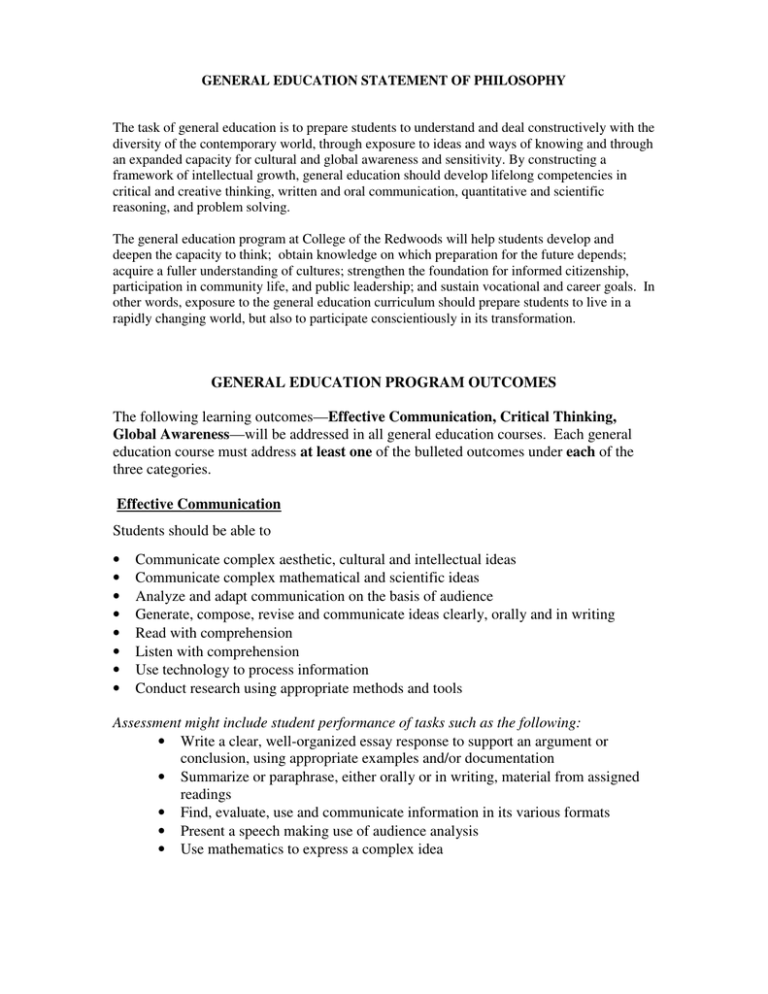
GENERAL EDUCATION STATEMENT OF PHILOSOPHY The task of general education is to prepare students to understand and deal constructively with the diversity of the contemporary world, through exposure to ideas and ways of knowing and through an expanded capacity for cultural and global awareness and sensitivity. By constructing a framework of intellectual growth, general education should develop lifelong competencies in critical and creative thinking, written and oral communication, quantitative and scientific reasoning, and problem solving. The general education program at College of the Redwoods will help students develop and deepen the capacity to think; obtain knowledge on which preparation for the future depends; acquire a fuller understanding of cultures; strengthen the foundation for informed citizenship, participation in community life, and public leadership; and sustain vocational and career goals. In other words, exposure to the general education curriculum should prepare students to live in a rapidly changing world, but also to participate conscientiously in its transformation. GENERAL EDUCATION PROGRAM OUTCOMES The following learning outcomes—Effective Communication, Critical Thinking, Global Awareness—will be addressed in all general education courses. Each general education course must address at least one of the bulleted outcomes under each of the three categories. Effective Communication Students should be able to • • • • • • • • Communicate complex aesthetic, cultural and intellectual ideas Communicate complex mathematical and scientific ideas Analyze and adapt communication on the basis of audience Generate, compose, revise and communicate ideas clearly, orally and in writing Read with comprehension Listen with comprehension Use technology to process information Conduct research using appropriate methods and tools Assessment might include student performance of tasks such as the following: • Write a clear, well-organized essay response to support an argument or conclusion, using appropriate examples and/or documentation • Summarize or paraphrase, either orally or in writing, material from assigned readings • Find, evaluate, use and communicate information in its various formats • Present a speech making use of audience analysis • Use mathematics to express a complex idea Critical Thinking Students should be able to • • • • • • • Evaluate ideas presented in writing, media, speech or artistic representations Evaluate sources of information Analyze/interpret creative expressions, resources, data Use problem-solving skills effectively Apply the scientific method and scientific reasoning Apply mathematical and scientific concepts to analyze relationships Make value judgments and ethical decisions Assessment might include student performance of tasks such as the following: • Assess bias in a written or oral message • Distinguish between data and interpretation • Describe the importance of testing hypotheses • Select and use appropriate data or resources to support a conclusion • Define a problem clearly, allowing for multiple perspectives • Distinguish ethical considerations in decision making • Extract relevant data from a problem, arrange it in table, graph or formula and obtain correct results Global*/Cultural Context Students should be able to • • • • Analyze issues from multiple perspectives Express an awareness of cultures in a diverse global community Explain the relationships between humanity and the natural environment Analyze issues within their historical context Assessment might include student performance of tasks such as the following: • Articulate understanding of interconnected global issues • Compare different world views relevant to specific ethical questions • Articulate understanding of historical influences on contemporary world • Articulate historical influences on language and contemporary knowledge • Describe cultural influences on the spread of knowledge • Identify the effects of social context on individual behavior * This document defines “global” widely and generally: • Of or relating to the entire earth as a planet—global environmental change • Relating to or embracing the whole of something or of a group of things • Worldwide, international, world, intercontinental—the global economy • Comprehensive, overall, general, broad, universal, extensive—a global view of the problem
